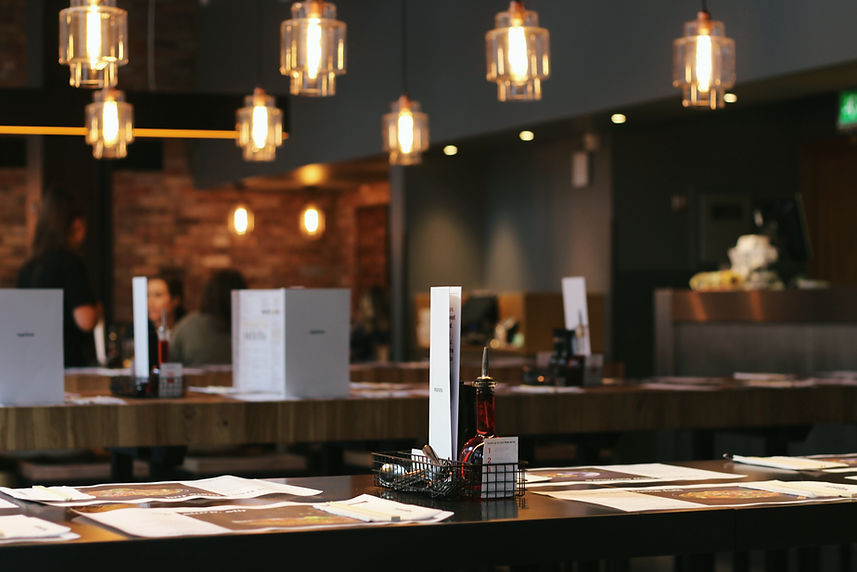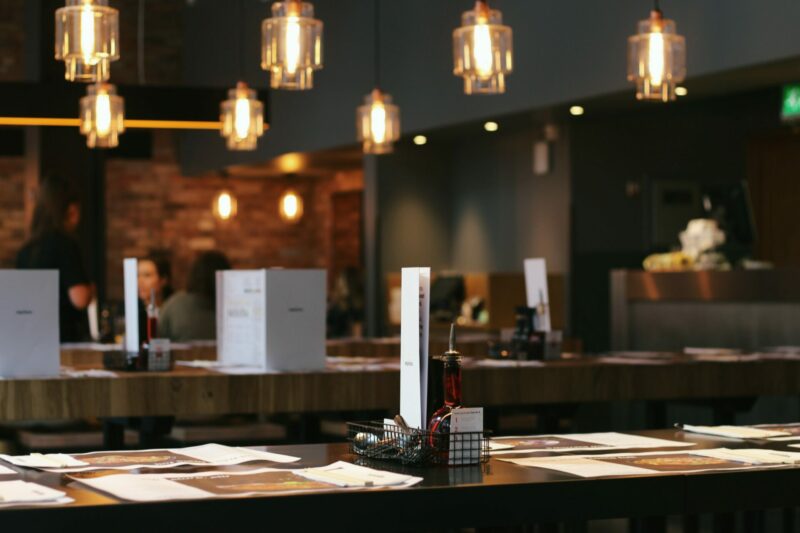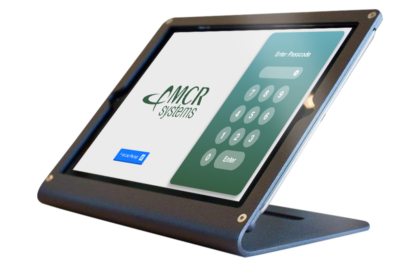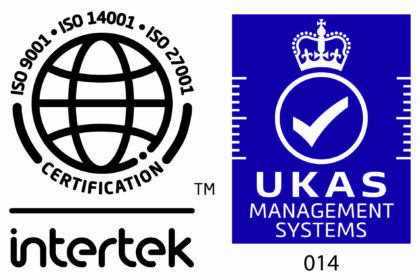The hospitality industry has seen a lot of changes over the past few years, with the accelerated adoption of technology and an increased focus on sustainability, and there is no sign of things slowing down.

So, in this blog, we’ll be looking at key trends shaping the UK hospitality industry over the next 10 years, based on the findings from YouGov’s recent hospitality survey, to help businesses prepare for the future.
Smart Connected Venues
Using technology became a necessity for many venues during the pandemic, as it offered a safe way to stay open. Digital menus were introduced to limit touch points and help prevent the spread of Covid and it had a knock on effect that helped to make service more efficient, reduce wait times and give customers a better overall experience.
As a consequence, 75% of younger Gen Z, expect that smart technology will be part of almost all venues in the near future and 45% (of the 2,300 people YouGov surveyed) prefer to have the option of ordering via smart technology to make the process more efficient.
Virtual Reality
Technology is expected to take customers on an immersive dining experience that will engage the senses in new ways.
Although there is currently less appetite to only visit a venue online or in virtual reality, (appealing to just 38% of millennials), it is expected there will be an increase in conceptual ‘meta-events’, for instance, where venues can take their diners virtually to visit the farm where their food came from, to promote local sourcing, or virtually meet the people who made their wine, to give an added dimension to the dining experience.
Although technology will play an important role in the future of hospitality, it is important not to lose sight that people and service will remain crucial to a business’ success. 86% of people agree that technology is useful, but feel venues are all about people and human interactions.
Elevated Customer Experience
It’s predicted that by 2032, pubs will have to offer more than just a pint. All generations of Brits have said they prefer venues that have a creative or themed environment, with 71% expecting venues to adapt to different needs across the day or week.
Many are coming to expect another layer of entertainment, from the addition of crazy golf or arcade games, to a family friendly play area. Venues will need to be flexible to increase revenue and transform to appeal to different demographics.
8 in 10 Brits Admit to Changing Their Behaviour
The pandemic has made people consider their nights out more, for many, JOMO, the joy of missing out, has begun to replace FOMO, the fear of missing out. People’s perception of a good night out is changing, now 68% of people are put off by long queues or crowds and 45% start their night earlier and end them earlier. It has become more about spending quality time with friends and family.
Businesses will need to react to ensure ordering and pay processes are efficient, to reduce queue times, ensure menus are online and adjust opening times to react to the changing behaviours.
47% of people are also more likely to research their night in detail before they go out, so having a good accessible website and social media content will be important to entice people in.
Non-alcoholic Drinks Increasing in Popularity
Many customers are getting more conscious about the amount of alcohol they are consuming, with nearly a third of customers expecting to be drinking less alcohol in the future.
43% of customers expect pubs and restaurants to offer a good range of alcoholic-free beverages and 4 in 10 Brits say they are happy to visit completely alcohol-free pubs or restaurants.
Hospitality businesses have the opportunity to increase their non-alcoholic ranges and start offering non-alcoholic beer on tap, to fully capture this growing market.
Sustainability
74% of customers think pubs produce too much waste and should take action to reduce it. It’s been found that restaurant goers are much more likely to support restaurants who are taking action and have a sustainable focus.
Moving to online menus to reduce paper waste is one way of getting ahead. Venues also need to tackle reducing their own waste, offering smaller menus and partnering with food waste organisations will be important considerations, helping to make a difference and appeal to eco-conscious customers.
Personalisation
The desire for hyper-personalised venues is expected to rise and having the right technology in place to support this will be vital.
In the future we could expect venues to provide private spaces where the experience is unique to each group, with the option for controlling music and lighting at your own tables.
36% of people would be more likely to visit venues that use technology to give a personalised menu that is unique to their tastes, including tailored beverage recommendations and 32% of people would be more likely to visit venues that use technology to offer tailored experiences such as personalised lighting and music.
Using apps is also another way to personalise the experience and give customers added convenience. 70% of people said they would use a food service app if it allowed them to split the bill easily with their friends.
The future of the hospitality industry is an exciting one, we can expect many advancements in the next 10 years, as businesses adapt to changing demands and expectations. But one thing is for certain, customers wanting an efficient, personalised service, will be here to stay.
Book a free demo of our leading EPOS system and provide a quick easy payment solution to your customers, or to seek advice on loyalty and rewards, online ordering or stock management and reducing waste, contact us on 0116 299 7000 or email enquiries@mcr-systems.co.uk.







